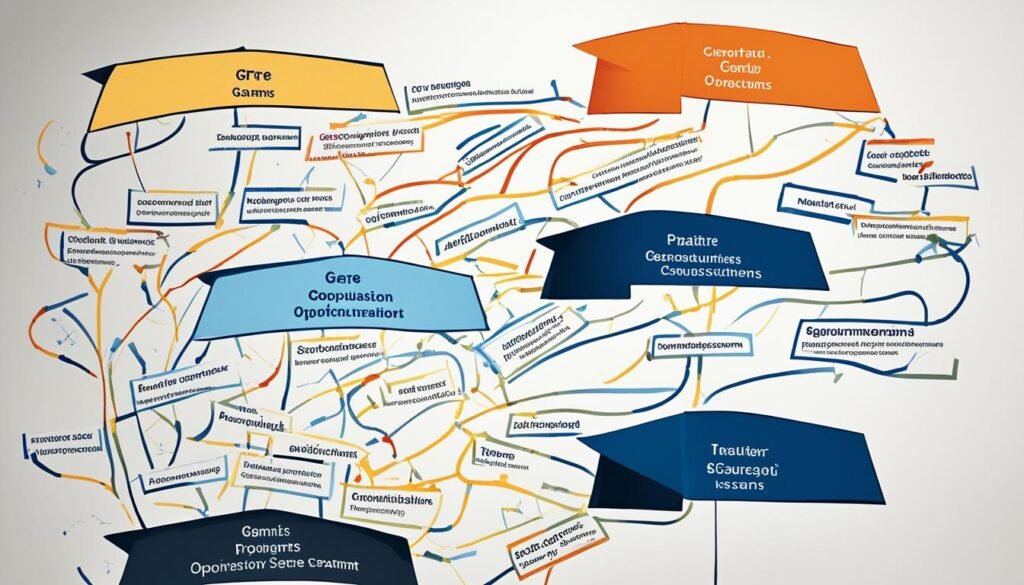Transitioning from a Master’s program to pursuing a PhD constitutes a remarkable academic endeavor. Imagine this scenario: you have completed your Master’s degree with flying colors, immersing yourself in the world of knowledge and specialization over the past two years. You stand at a crossroads, envisioning whether to leap into a doctoral journey that stretches anywhere from five to seven years.
The thought of engaging in doctoral studies might seem daunting, but the desire to delve deeper into your field and contribute original insights propels you forward. Unlike the relative comfort and predictability of a Master’s program, a PhD demands a profound commitment to research and scholarship. You weigh your options meticulously, considering not just the academic advancement, but also the extensive timeframe and stringent requirements it entails.
To make this transition smoother, California Intercontinental University (CIU) and The Continents States University (CSU) have joined forces to provide students with a seamless route from a Master’s to a PhD program. CIU’s reputation for innovative online education pairs perfectly with CSU’s focus on affordable, competency-based learning. This collaboration ensures students have access to flexible, online programs with personalized support, paving the way for a smooth transition to doctoral studies.
Key Takeaways
- The transition from a Master’s to a PhD signifies a significant academic escalation and requires careful consideration.
- Pursuing a PhD involves a dedicated pursuit of specialized knowledge, contributing original insights to your field.
- PhD programs in the United States generally take five to seven years, in addition to the one to three years spent on a Master’s program.
- Funding opportunities for PhD programs are often more abundant compared to terminal Master’s programs.
- CIU and CSU offer a collaborative route, ensuring a flexible and support-driven transition to doctoral studies.
Is a PhD Right for You?
Pursuing a doctoral degree candidacy represents a profound commitment to one’s academic career and opens numerous research opportunities. The decision to embark on this journey often stems from the desire to advance beyond a Master’s degree, aiming for high-level roles in academia, research, or industry. However, the path is not without challenges and requires careful consideration regarding one’s professional goals and personal circumstances.
Reasons to Pursue a PhD
There are various compelling reasons for initiating a doctoral degree candidacy. Many individuals are driven by the aspiration to contribute new knowledge to their field through intensive research. For some, a PhD is essential for pursuing an academic career or attaining senior positions within research institutions. Furthermore, federal data suggests that occupations requiring a Master’s or higher are on the rise, with Master’s-level occupations projected to grow by 17% and doctoral and professional-level degrees seeing about 13% growth by 2026. This reflects the increasing demand for advanced qualifications in the job market.
Differences Between PhD and Professional Doctorate Degrees
A crucial consideration in your academic career is understanding the distinction between a PhD and professional doctorate degrees. While both represent the pinnacle of academic achievement, they serve different purposes. A PhD focuses on generating new knowledge within a field through original research, making it ideal for those aiming to contribute significant academic insights. Conversely, professional doctorate degrees, such as a JD or MD, are designed to apply advanced knowledge and skills directly within a professional context. These programs are oriented towards practical application and are often necessary for specific career paths in law, medicine, and other specialized industries.
The choice between a PhD and a professional doctorate depends on your career goals and the nature of the doctoral degree candidacy you aim to pursue. Whether seeking theoretical research opportunities or practical professional advancement, both paths demand rigorous dedication and offer substantial long-term benefits. Notably, California Intercontinental University (CIU) and The Continents States University (CSU) have partnered to provide flexible, personalized educational pathways, helping students transition seamlessly from a Master’s to a PhD program.
Choosing Between a Master’s and PhD Path
Deciding whether to start with a Master’s degree or proceed directly to a PhD is a pivotal decision in higher education planning. The choice depends on personal and professional goals, previous academic experiences, and preferred pathways to success.

Advantages of Starting with a Master’s
Embarking on a postgraduate pathway with a Master’s degree can offer several benefits. For one, it typically lasts for only one year, providing a shorter commitment than a PhD. Many students find that having a Master’s on their resume enhances their chances of being accepted into a doctoral program. This interim step allows for career exploration, skill enhancement, and academic profile improvement before committing to a PhD. Additionally, a Master’s degree familiarizes students with advanced research techniques and helps establish crucial professional relationships.
The financial and career benefits of a Master’s degree are significant. Master’s graduates can see a 17% boost in earnings compared to those with only a bachelor’s degree. These degrees tend to be career-oriented, offering enhanced employment opportunities and potential for career advancement in a shorter time frame. Projections suggest that occupations requiring a master’s degree will grow by 17% by 2026, indicating strong demand in the job market.
Benefits of Direct PhD Admission
For those with a robust focus on research and a clear vision for their academic journey, direct PhD admission presents compelling advantages. Skipping the Master’s degree phase can save time and money. A PhD, typically lasting three to four years, may often include the first year mirroring a Master’s curriculum.
Direct PhD admission appeals to highly motivated individuals ready to commit to a long-term research endeavor. This pathway can also increase the chances of obtaining financial aid, including research grants and teaching assistantships. However, direct entry may not provide the intermediate experience of creating a research proposal, as some pre-funded projects might already have specific research frameworks in place. Although this route skips the Master’s degree, it demands resilience, confidence, and a clear determination to pursue a specialized field of study.
Individuals capable of handling the pressure and commitment issues often associated with bypassing a Master’s degree can potentially earn higher lifetime incomes. On average, a doctorate degree can result in a salary 30% higher than a bachelor’s degree and lifetime earnings exceeding $3.5 million. A PhD is considered a terminal degree, crucial for careers in academia and research, symbolizing substantial scholarly achievement and expertise.
Partnerships between institutions, such as those between California Intercontinental University (CIU) and The Continents States University (CSU), offer flexible, online programs that bridge the gap between a Master’s and a PhD. CIU’s innovative online education and CSU’s competency-based learning approach provide students with personalized support, ensuring a smooth transition to doctoral studies.
Finding the Right PhD Program
Embarking on the journey to find the right PhD program requires a thorough understanding of your academic goals, research interests, and career aspirations. Given the competitive nature of doctoral admissions, meticulous planning and research are essential.
Researching PhD Programs
The process of PhD program selection starts with identifying institutions that offer a strong academic fit. Analyzing the research-focused curriculum, faculty expertise, and the availability of resources ensures that the program aligns with your research goals. Prospective students should prioritize creating a list of targeted programs to compare aspects such as duration, competitiveness, and alignment with career objectives. By interacting with faculty and department staff, you can gain valuable insights into the academic environment and resources available for research.
PhD Program Requirements
Understanding the specific requirements for PhD program selection is crucial for a successful application. These requirements can vary significantly, but often include comprehensive proposals that demonstrate your intended research contributions. Applicants must be aware of timelines and deadlines, ensuring all materials are prepared and submitted meticulously. The choice of a doctoral adviser and the assessment of available financial aid options, such as assistantships, fellowships, and supplemental aid, are also fundamental steps in this process.
Application Process for PhD Programs

If you are considering embarking on a PhD journey, understanding the application process is crucial. Every academic institution has its own unique PhD application guide, outlining essential admission requirements and specific steps candidates must follow. Here’s a closer look at what you need to know.
General Application Requirements
Generally, a PhD application guide will emphasize a comprehensive dossier including various critical documents. These typically encompass academic transcripts, letters of recommendation, standardized test scores, and a polished PhD proposal. Most institutions require applicants to hold a master’s degree in a related field. Some ones also offer pathways from a Bachelor’s degree, but these often include integrated Master’s training. Tailoring this dossier to reflect your unique doctoral candidate profile can make a significant difference. Each document should demonstrate your academic readiness and potential.
Tips for a Successful Application
Ensuring a successful application involves several strategic steps. First and foremost, start your preparations early. Given that universities have varied deadlines, especially for funding applications, timing is key. Ensure your research proposal is well-defined and innovative, stressing how it aligns with the institution’s objectives and resources. Highlighting your previous research experience, such as a relevant Master’s study, can also strengthen your application. Remember to scrutinize each application’s specific admission requirements, as these can vary widely between programs and universities.
Moreover, a compelling doctoral candidate profile can significantly enhance your prospects. Emphasize your academic achievements, showcase your capacity for independent research, and align your vision with the goals of the program you are applying to. By methodically addressing each aspect of the PhD application guide, you increase your chances of gaining acceptance into your desired program.
Funding Your PhD Journey
Embarking on a PhD journey involves significant financial considerations, but numerous PhD funding opportunities exist to help ease the burden. Understanding the available options can make a substantial difference in managing your educational expenses.
Types of Funding Available
There are various types of funding available for PhD candidates, such as educational scholarships, research grants, and financial aid for doctorate programs. Many universities, including Capella University, offer scholarships specifically designed to support doctoral students, making higher education more accessible. Additionally, teaching assistantships and research assistantships are common ways to receive financial support while gaining valuable academic and teaching experience.
Strategies for Securing Funding
Securing funding for your doctorate requires a proactive approach. Start by researching institutions known for offering robust PhD funding opportunities. Both public and private institutions, although differing in annual costs (USD 12,394 for public and USD 26,621 for private), provide various funding options. Applying for multiple research grants can increase your chances of financial support. Federal Direct loans also play a crucial role, with graduate students eligible to borrow up to $138,500, subject to an annual limit of $20,500 in Federal Direct unsubsidized loans. Some loans offer a six-month grace period post-graduation, providing relief before monthly payments begin.
Moreover, leveraging relationships with academic advisors and mentors can lead to valuable recommendations for funding sources. A well-crafted research proposal and a strong academic record are crucial elements that enhance your funding applications’ appeal, showcasing your potential to contribute meaningfully to your field.
Furthermore, the partnership between California Intercontinental University (CIU) and The Continents States University (CSU) emphasizes affordability and flexible, online PhD programs. CIU’s innovative online education and CSU’s competency-based learning approach ensure a smooth and efficient path to a doctoral degree, supported by personalized guidance and resources.
Timelines and Expectations for PhD Programs
Embarking on a PhD journey requires an understanding of the typical PhD completion timeline and the doctoral program expectations. The average duration of a PhD program spans between five to six years, though some students may extend this period to eight or nine years. For those pursuing part-time options, the timeline can lengthen further to approximately six to eight years.
Initially, the doctoral coursework phase, generally stretching over two to three years, lays the foundational knowledge essential for advanced research. By the end of this stage, students typically undertake comprehensive exams, ensuring they are equipped to proceed to independent research.
The latter part of a PhD program focuses on dissertation work, typically taking two years to complete. Some students may expedite this to one year, depending on the complexity of their research and available resources. Universities often provide dissertation completion grants to financially support students in this crucial stage.

A critical milestone in the doctoral process is the dissertation defense, an essential rite of passage often open to observers. Following successful defense and dissertation approval, graduation and potential postdoc opportunities await. Support facilities like dissertation writing workshops and peer groups also play a pivotal role in facilitating the completion of the dissertation phase.
Considering the variations in PhD duration, students must be proactive in understanding their academic milestones and leveraging available resources. The partnership between California Intercontinental University (CIU) and The Continents States University (CSU) offers a flexible, online PhD program structure, ensuring students can achieve their doctoral degree efficiently and with personalized support.
Initial Meeting with Your Academic Advisor
Early interactions with your academic advisor are critical to laying a strong foundation for your PhD journey. The rise in colleges and universities offering smaller classes for first-year students has significantly impacted the dynamic of these initial meetings. Advisors play a pivotal role in providing essential *PhD mentorship* that guides you through the various stages of your doctoral program.
Choosing an advisor who aligns with your research interests and offers valuable *academic support* can profoundly influence your academic success. Regular check-ins, preferably weekly or biweekly, ensure you stay aligned with your research goals and academic progress. It’s also crucial to respect your advisor’s time; always attend meetings well-prepared to make the most of the *doctoral supervision* they provide.
In addition to academic advising, California Intercontinental University (CIU) and The Continents States University (CSU) have set a precedent in offering flexible, innovative online education tailored to individual needs. Their partnership enables seamless transitions from master’s to PhD programs, with a focus on competency-based learning and support. This structured support system is particularly beneficial for those navigating the complexities of a PhD program.
Apart from focusing on your research, advisors can also aid in exploring multidisciplinary fields of study, research opportunities, and internships that enhance your academic experience. Given the personalized mentoring and structured academic advising, the relationship you forge with your advisor is often a long-term partnership. This relationship is instrumental in navigating the academic milestones and challenges associated with earning a PhD.
Research Proposal Development
Crafting a comprehensive and effective PhD proposal is the cornerstone of your doctoral studies. The development process typically begins with understanding the essentials of PhD proposal crafting, which involves delineating clear and precise research objectives. This is crucial as your proposal serves as a map that guides your entire research journey.
A strong proposal should consist of several core components: an introduction that sets the stage, a background section that highlights previous work in the field, a well-rounded literature review, a detailed research methodology, and practical elements like project plans and timelines. At the PhD level, proposals are usually between 5000-8000 words, significantly more detailed than a master’s level proposal which ranges from 2000-3000 words.

Unlike many other academic documents, a PhD research proposal must also sharply justify the originality and significance of the proposed study. This entails demonstrating how your research will fill gaps in current knowledge and outlining the practicalities of your doctoral thesis planning. A thorough proposal should anticipate potential challenges and offer solutions while setting a realistic timetable for completion.
Given the varied requirements across different institutions, it’s advisable to check specific guidelines before embarking on academic proposal writing. Some universities may require additional elements tailored to specific fields of study. Collaborating with your academic advisors and leveraging resources from educational institutions like California Intercontinental University (CIU) and The Continents States University (CSU) can provide invaluable support. CIU’s innovative online education model combined with CSU’s affordable, competency-based approach offers a flexible and structured path to achieving your PhD goals.
A comprehensive proposal not only facilitates a successful admission but also lays the groundwork for a structured and coherent PhD journey that spans three to four years of full-time study. The PhD process is intricate, divided into seven stages, beginning with the proposal development and culminating in defending your research at a viva voce. Hence, your proposal is not merely a formality but a pivotal document that impacts the trajectory of your doctoral research and its eventual success.
Coursework, Electives, and Exams
Pursuing a PhD entails navigating through a structured framework of rigorous PhD coursework, doctoral electives, and comprehensive exams. In the initial stages, you will delve into advanced coursework directly related to your field of study. This phase often spans between four to eight years, dependent on your previous educational attainment and specific program requirements.
Doctoral students typically start with predetermined PhD coursework and progress to specialized doctoral electives in their second year. Electives enable you to tailor your academic journey to your research interests, ensuring a comprehensive educational experience. Throughout this period, you will engage in courses that may require reading and critiquing 4-10 articles per session, with each article spanning 20 to 40 pages.
Comprehensive exams are another critical component of the doctoral process. These exams are designed to assess your proficiency and understanding of the subject matter. Seminars, another staple of PhD programs, often involve significant discussions based on the critique and analysis of academic research. Classes generally include 2 to 25 participants, promoting an environment of intensive academic rigor and collaboration.
The partnership between California Intercontinental University (CIU) and The Continents States University (CSU) offers a seamless transition from a master’s to a PhD program. CIU’s commitment to innovative online education and CSU’s focus on affordability and competency-based learning create a flexible, supportive path for doctoral students. This collaboration ensures that you have access to personalized support, adaptable timelines, and an efficient trajectory towards earning your doctoral degree.
The Role of CIU and CSU in Your Academic Journey
California Intercontinental University (CIU) and The Continents States University (CSU) have joined forces to offer students a seamless educational experience, especially for those looking to transition from a master’s program to a PhD. This partnership leverages CIU’s expertise in innovative online education and CSU’s focus on competency-based learning.
Advantages of CIU’s Innovative Online Education
CIU online programs provide flexibility and accessibility to students globally. Known for its commitment to academic excellence, CIU offers a dynamic platform where learners can engage in rigorous coursework and research activities without the constraints of traditional classroom settings. This innovative approach makes it easier for working professionals or those with personal commitments to pursue their academic goals without compromise.
CSU’s Competency-Based Learning Approach
CSU competency-based learning is designed to be both affordable and flexible, allowing students to progress based on their mastery of subject matter rather than time spent in class. This method is particularly advantageous for individuals aiming to achieve specific competencies relevant to their field of study or professional advancement. By focusing on what students can do, rather than how long it takes them to do it, CSU ensures that learning is both efficient and effective.
How Their Partnership Simplifies Your Path
The academic partnerships between CIU and CSU offer an integrated approach to education, making the pursuit of flexible PhD paths more accessible. Students benefit from a tailored educational experience that supports their unique needs and academic aspirations. Whether you are looking to take advantage of CIU’s online programs or CSU’s competency-based learning model, this collaboration provides the resources and framework necessary for a successful academic journey.
Transitioning from a Master’s to a PhD Program
Embarking on the journey from a Master’s to a PhD program signifies an essential step in advancing to PhD research and scholarship. Prospective candidates often face crucial choices regarding program compatibility and the potential alignment of their research interests for a successful doctoral transition. The decision to pursue a post-master’s academic track involves thorough preparation and a deep commitment to specialized study.
The transition phase typically includes milestones such as the Confirmation of candidature, reflecting the readiness for intense research. This period offers an opportunity to gauge whether advancing to PhD goals aligns with personal and career aspirations.
The role of supervisors and mentors cannot be overstated; they are instrumental in navigating the doctoral transition. A supportive dissertation supervisor and an engaged committee can significantly enhance one’s post-master’s academic track, ensuring that both academic and emotional needs are met throughout the journey.
California Intercontinental University (CIU) and The Continents States University (CSU) have developed a collaborative framework to facilitate this process. CIU’s innovative online education and CSU’s dedication to competency-based learning provide a flexible, supportive environment for students transitioning from a master’s to a PhD program. This partnership allows for a seamless experience, helping candidates to focus on their scholarly pursuits without compromising on academic excellence.
Moreover, understanding the rigorous expectations and structuring one’s plan meticulously can alleviate many challenges that arise during the doctoral transition. It is crucial to continually evaluate the necessity of a PhD for future career goals while maintaining a balance between personal well-being and academic dedication.
Ultimately, the journey from a Master’s to a PhD is a transformative passage, offering substantial opportunities for academic and personal growth.
Tips for Balancing Professional and Academic Commitments
Balancing the intensive demands of a PhD program with professional responsibilities requires strategic planning and time management. An analysis shows that the busiest times for academic advisors are typically mid-fall and mid-spring semesters, indicating high workload peaks during these periods. Therefore, adopting the strategy of working smarter, not harder, suggests maintaining a consistent workflow throughout the semester rather than engaging in last-minute efforts.
Effective tools such as Google Drive, citation managers, calendars, to-do lists, and Evernote can significantly enhance productivity and organization in managing PhD responsibilities. Incorporating real-world examples and professional experiences into class discussions can enrich the learning experience, contributing to both work-study balance and professional development during PhD studies.
Encouraging collaboration within both academic and professional settings emphasizes the importance of diverse perspectives, which is vital for networking and effective teamwork. Additionally, engaging in reflection after each class to assess learning experiences can inform future academic endeavors, such as dissertation topics and research methodologies.
Planning small rewards during mid-semester slumps can help maintain motivation and prevent burnout. This practice underscores the value of balancing academic commitments with personal downtime. Strategic reading techniques, such as focusing on abstracts and key sections of study materials, are essential for managing both academic and professional responsibilities efficiently.
In an environment where 90% of students at Our Lady of the Lake University pursuing graduate degrees are working full-time, the rise of online master’s programs is notable. These programs cater to the needs of working professionals seeking advanced degrees by offering the flexibility to access coursework at any time, supporting work-study balance and professional development during PhD pursuits.
Overcoming Challenges in Pursuing a PhD
Pursuing a PhD is a journey laden with numerous PhD challenges that demand resilience and resourcefulness. From managing time effectively to securing adequate funding, doctoral candidates often grapple with a multitude of hurdles. These challenges, however, can be mitigated by early preparation, goal-setting, and leveraging support networks. Dr. Long’s experience illustrates how overcoming academic hurdles requires not just brilliance but persistence and adaptability.
Common Obstacles and Solutions
PhD students commonly face financial challenges due to the high cost of tuition and living expenses. Scholarships, like the one Dr. Long received from the University of Michigan Flint, can provide substantial relief. However, managing a heavy workload remains a significant hurdle; effective time management is vital to balance research, coursework, and personal commitments.
Another frequent obstacle is building a productive relationship with supervisors. Clear communication and setting boundaries are crucial for a successful mentorship, as highlighted by Dr. Long. Additionally, mental health issues such as anxiety, depression, and burnout are prevalent due to the intense pressure of doctoral studies. Implementing self-care routines and seeking professional help when needed can foster better mental health and resilience in doctoral studies.
The Importance of a Support Network
A robust support network is indispensable for navigating the complexities of a PhD program. Dr. Long stressed the role of fellow students and mentors in his journey. Support from peers and advisors provides emotional backing and practical advice, crucial for overcoming academic hurdles. Doctoral student support also extends to celebrating achievements, as personal milestones significantly boost morale and motivation.
Institutions like California Intercontinental University (CIU) and The Continents States University (CSU) emphasize the importance of such support networks. Their partnership offers doctoral candidates a cohesive and supportive academic environment, combining CIU’s innovative online education with CSU’s competency-based learning approach. This collaboration ensures students receive personalized guidance, facilitating resilience in doctoral studies.
Details of statistical data are incorporated in the prose, reflecting real-life challenges and solutions pertinent to pursuing a PhD.
Conclusion
Completing a PhD signifies a monumental accomplishment in your academic journey, marking the culmination of years of rigorous study and research. This process typically spans three to four years of full-time engagement, focused on conducting research, collecting results, and ultimately crafting a thesis. The journey involves various checkpoints including supervisor meetings, literature reviews, upgrade exams, and progress assessments to ensure readiness for the final PhD defense or viva voce.
Throughout this endeavor, you’re not only enhancing your subject matter expertise but also developing valuable skills in teaching, marking, and providing feedback. Publishing your research can significantly raise your academic profile, showcasing your findings to the scholarly community. Engaging in these activities prepares you for future academic prospects, whether within academia or in industry roles that value a doctorate’s level of specialization and research acumen.
Institutions like California Intercontinental University (CIU) and The Continents States University (CSU) facilitate this rigorous but rewarding path with their innovative, flexible programs. CIU’s online education paired with CSU’s affordable, competency-based learning approach ensures that you receive personalized support throughout your PhD journey. This partnership exemplifies how modern education adapts to meet the diverse needs of doctoral candidates, providing pathways tailored to help you achieve this prestigious milestone efficiently and comprehensively.
Source Links
- https://academicpositions.com/career-advice/master-s-first-or-straight-to-phd
- https://gradarticles.smu.edu/advancing-the-field/the-phd-timeline-what-can-you-expect-from-your-program
- https://www.findaphd.com/blog/3670/skipping-a-masters-on-the-way-to-a-phd-the-road-less-travelled
- https://www.franklin.edu/blog/masters-vs-doctorate-degrees
- https://www.findaphd.com/guides/phd-without-masters
- https://www.gradschools.com/degree-guide/masters-vs-phd
- https://www.phds.me/resources/choosing-the-right-doctoral-program/
- https://extension.harvard.edu/blog/how-to-choose-a-graduate-program/
- https://grad.smu.edu/a-guide-to-choosing-applying-for-and-thriving-in-a-phd-program
- https://www.postgrad.com/advice/phd/applying_for_a_phd/
- https://www.findaphd.com/guides/phd-application-step-by-step-checklist
- https://www.findaphd.com/guides/the-phd-journey
- https://www.capella.edu/blog/phd-doctorate/how-to-fund-your-doctoral-degree/
- https://www.azent.com/expert-tips/phd-in-usa
- https://bemoacademicconsulting.com/blog/how-long-to-get-phd
- https://www.bestcolleges.com/blog/ask-an-academic-advisor/
- https://blog.r3ciprocity.com/tips-meeting-phd-advisor-graduate-supervisor-actually-work/
- https://gradcoach.com/what-is-a-research-proposal-dissertation-thesis/
- https://bemoacademicconsulting.com/blog/how-to-get-a-phd
- https://blog.r3ciprocity.com/what-are-doctoral-phd-classes-like/
- https://www.phds.me/ask-the-expert/can-i-earn-a-phd-without-a-masters/
- https://www.ncbi.nlm.nih.gov/pmc/articles/PMC6531058/
- https://www.ncbi.nlm.nih.gov/pmc/articles/PMC6481497/
- https://dianasleite.medium.com/the-art-of-quitting-lessons-from-my-ph-d-journey-d8499fc17405
- https://thesiswhisperer.com/2018/05/16/upgrading-from-masters-to-phd/
- https://cgps.usask.ca/onboarding/transition/transition-from/to-doctorate.php
- https://www.insidehighered.com/advice/2021/06/03/career-strategies-balancing-grad-school-and-full-time-work-opinion
- https://onlineprograms.ollusa.edu/resources/article/8-strategies-for-balancing-a-career-family-and-graduate-school/
- https://graduate.rice.edu/news/current-news/work-life-balance-graduate-school
- https://blogs.umflint.edu/graduateprograms/2024/01/22/overcoming-challenges-and-finding-success-in-grad-school-a-journey-with-dr-john-long/
- https://mindthegraph.com/blog/phd-struggles/
- https://www.authoraid.info/en/news/details/1905/
- https://www.discoverphds.com/advice/doctorates/masters-vs-phd
